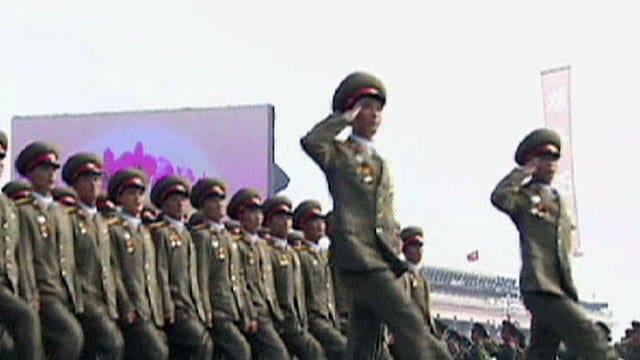North Korea: 'Grave provocation' canceled invite for envoy
Envoy was set to negotiate release of American prisoner
North Korea said it rescinded its recent invitation to a U.S. envoy because Washington perpetrated a "grave provocation" by allegedly mobilizing nuclear-capable bombers during recent military drills with Seoul.
Bob King, the U.S. special envoy for North Korean human rights, had been scheduled to visit North Korean on Friday to seek the release of an American detained in November for committing "hostile acts." Kenneth Bae, a 45-year-old tour operator and Christian missionary, was sentenced in April to 15 years of hard labor.
An unidentified North Korean Foreign Ministry spokesman said in remarks carried by state media late Saturday that his country intended to allow King's visit for talks on Bae even though the U.S. and South Korea were conducting annual military drills.
But he said the U.S. "beclouded the hard-won atmosphere of humanitarian dialogue in a moment" by allegedly infiltrating B-52H strategic bombers into the sky above the peninsula during the exercises. He called it "the most blatant nuclear blackmail against us."
The annual Ulchi Freedom Guardian drills, which ended Friday, were computer-simulated war games that U.S. and South Korea say are defensive nature. Calls to the office of the U.S. military command in Seoul seeking comments were unanswered Sunday.
Earlier this year, the U.S. took the unusual step of sending nuclear-capable B-52 and B-2 bombers to participate in springtime military drills with South Korea as tension was running high after a string of warlike rhetoric from North Korea, including vows to launch nuclear war. The flights drew a furious response from Pyongyang. Animosities have since eased, with Pyongyang moderating its rhetoric and seeking diplomacy with Seoul and Washington.
State Department spokeswoman Marie Harf said Friday the U.S. was "surprised and disappointed by North Korea's decision" and remains gravely concerned about Bae's health. Bae's family expressed disappointment but said they were holding on to faith that North Korean and U.S. diplomats would resume talks soon. Bae suffers from multiple health problems.
Bae is at least the sixth American detained in North Korea since 2009. The others were eventually allowed to leave without serving their terms, with some releases coming after prominent Americans, including former Presidents Bill Clinton and Jimmy Carter, visited North Korea.
Analysts say North Korea has previously used detained Americans as bargaining chips in its standoff with the U.S. over its nuclear and missile programs. International disarmament talks on ending North Korea's nuclear ambitions remain stalled since 2009.








































